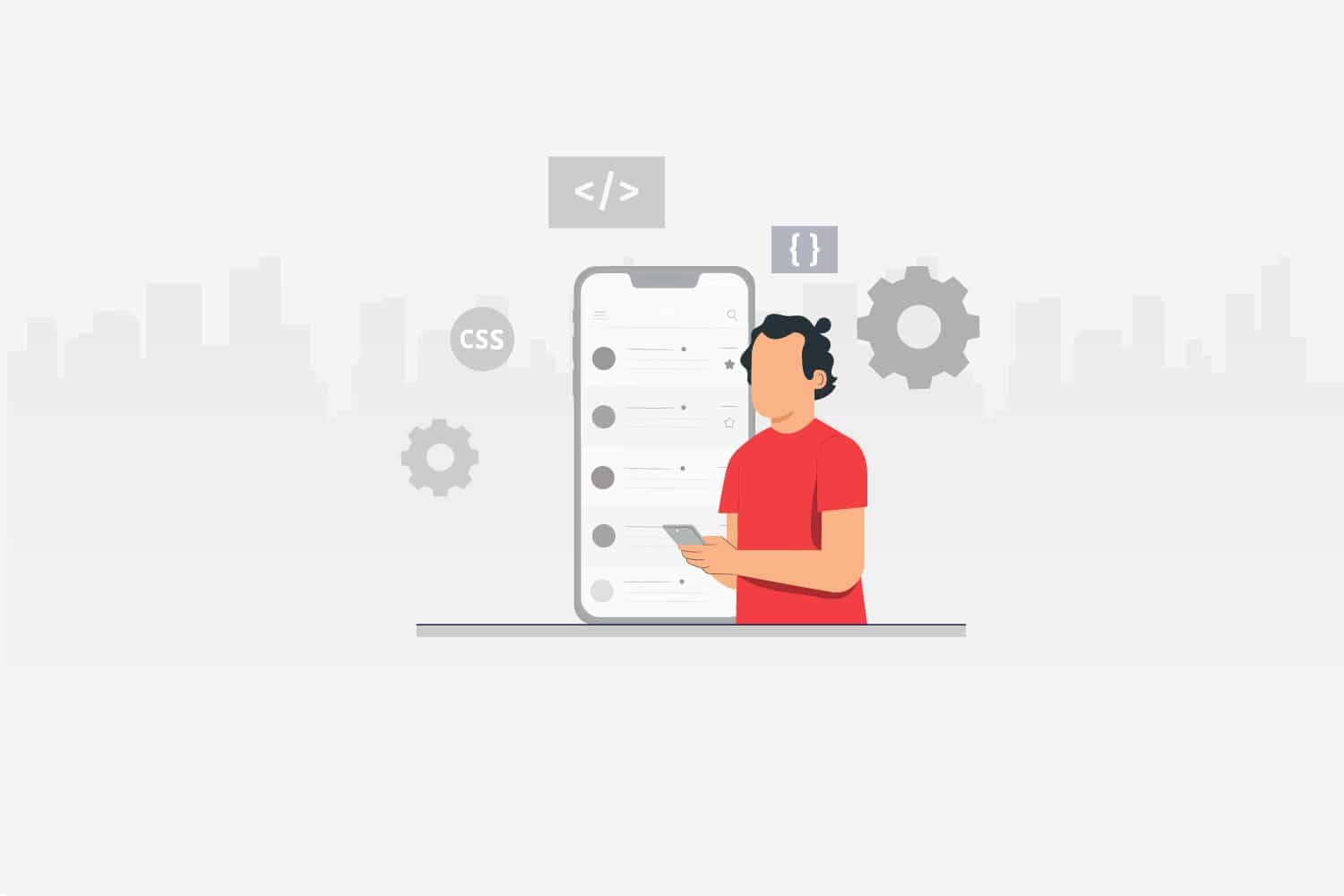The field of medical coding has experienced a significant surge in demand in recent years, reflecting the evolving landscape of healthcare and the increasing reliance on accurate coding practices. As healthcare organizations strive to maintain compliance, optimize revenue, and streamline operations, the role of medical coders has become integral to their success. HR professionals and CXOs involved in the recruitment process must stay informed about the shifting trends in this sector to effectively identify and attract skilled medical coders.
According to recent analytics, the demand for medical coders has witnessed a steady rise, with a projected growth rate of X% over the next five years. This increasing demand highlights the importance of understanding the dynamics of the medical coding landscape and asking relevant interview questions to ensure the selection of qualified candidates who can contribute to the success of the organization.
Here are the top 60 Medical Coder interview questions to ask job applicants:
15 general interview questions for the Medical Coder
- Can you provide an overview of your experience and background in medical coding?
- How familiar are you with different coding systems, such as ICD-10, CPT, and HCPCS?
- Can you explain the process you follow to assign appropriate codes to medical diagnoses and procedures?
- How do you ensure accuracy and compliance when coding medical records?
- Have you ever encountered coding errors or discrepancies? How did you handle them?
- How do you stay updated on the latest coding guidelines, regulations, and industry best practices?
- Can you describe your experience working with Electronic Health Record (EHR) systems and coding software?
- Are you familiar with insurance billing and reimbursement processes? How do your coding practices support these processes?
- Have you ever worked on coding audits? How do you approach them and what actions do you take to improve coding accuracy?
- How do you handle the pressure of meeting coding deadlines while maintaining accuracy?
- Can you provide an example of a challenging coding scenario you’ve encountered and how you resolved it?
- How do you collaborate and communicate with healthcare professionals, such as physicians or nurses, to clarify coding-related questions or obtain additional information?
- Are you experienced in coding for different healthcare specialties? If so, which specialties have you worked with?
- How do you handle confidential patient information and ensure data privacy and security?
- Can you describe any specific achievements or projects in your career that demonstrate your coding skills and expertise?
5 sample answers to general interview questions for the Medical Coder
- Can you provide an overview of your experience and background in medical coding?
Look for: A summary of the candidate’s relevant education, certifications, and work experience in medical coding.
Example Answer: “I have a Bachelor’s degree in Health Information Management and hold a Certified Professional Coder (CPC) certification. I have been working as a medical coder for the past five years, primarily in a hospital setting. During this time, I have coded a wide range of medical records, including inpatient, outpatient, and surgical cases.”
- How familiar are you with different coding systems, such as ICD-10, CPT, and HCPCS?
Look for: Proficiency and familiarity with the coding systems commonly used in medical coding.
Example Answer: “I am highly familiar with ICD-10, CPT, and HCPCS coding systems. I have used these coding systems extensively throughout my career and stay updated on any revisions or updates to ensure accurate coding. I have experience assigning appropriate diagnosis codes using ICD-10, and I am well-versed in CPT codes for procedure coding.”
- Can you explain the process you follow to assign appropriate codes to medical diagnoses and procedures?
Look for: A systematic approach to coding, including gathering necessary information, conducting research when needed, and applying coding guidelines correctly.
Example Answer: “When assigning codes, I start by carefully reviewing the medical documentation, including physician notes and lab results. I ensure that I have a clear understanding of the patient’s condition and the services provided. I refer to coding manuals and guidelines to select the most accurate and specific codes. If needed, I consult with healthcare professionals to clarify any ambiguities or seek additional information before finalizing the codes.”
- How do you ensure accuracy and compliance when coding medical records?
Look for: Attention to detail, adherence to coding guidelines and regulations, and a commitment to maintaining accuracy and compliance.
Example Answer: “Accuracy and compliance are crucial in medical coding. I pay close attention to details, double-checking codes for accuracy and completeness. I stay up to date with coding guidelines and regulations, such as those provided by the American Medical Association (AMA) and the Centers for Medicare and Medicaid Services (CMS). I am meticulous in my work, ensuring that codes reflect the documented services accurately while adhering to all relevant compliance standards.”
- Have you ever encountered coding errors or discrepancies? How did you handle them?
Look for: Problem-solving skills, the ability to identify and rectify coding errors, and proactive steps taken to prevent future errors.
Example Answer: “Yes, I have encountered coding errors in the past. When I come across a coding discrepancy, I first review the documentation and coding guidelines to identify the source of the error. Once identified, I rectify the error by updating the codes appropriately. To prevent future errors, I analyze the root cause and take corrective actions, such as providing training to physicians or implementing additional documentation review processes, if necessary.”
15 behavioral interview questions for a Medical Coder
- Describe a time when you had to handle a particularly complex coding scenario. How did you approach it, and what was the outcome?
- Can you recall a situation where you faced a significant coding challenge or disagreement with a physician or healthcare professional? How did you handle it?
- Tell me about a time when you made an error in coding. How did you realize the mistake, and what actions did you take to rectify it?
- Give an example of a time when you had to work under tight deadlines to complete a coding project. How did you prioritize tasks and ensure accuracy in such a time-sensitive situation?
- Describe a situation where you had to communicate coding-related information or clarify documentation requirements to a physician or other healthcare provider. How did you handle the conversation, and what was the outcome?
- Can you share an experience where you identified a coding discrepancy during an audit or review process? How did you address it, and what improvements did you suggest to prevent similar issues in the future?
- Tell me about a time when you had to adapt your coding practices to accommodate changes in coding guidelines or regulations. How did you ensure a smooth transition, and what strategies did you use to stay updated with the changes?
- Describe a situation where you had to handle a high volume of coding assignments simultaneously. How did you manage your workload effectively without sacrificing accuracy?
- Give an example of a time when you had to collaborate with other departments or teams to obtain additional information or clarify coding-related issues. How did you establish effective communication, and what was the outcome of the collaboration?
- Can you recall a time when you encountered a coding-related ethical dilemma? How did you handle it, and what factors did you consider while making your decision?
- Describe a situation where you implemented process improvements or introduced new coding practices that resulted in increased efficiency or accuracy. What steps did you take, and what were the outcomes?
- Give an example of a time when you faced resistance or pushback from colleagues or superiors regarding your coding recommendations or practices. How did you handle the situation and gain their support?
- Tell me about a time when you had to handle confidential patient information while ensuring data privacy and security. How did you maintain confidentiality and adhere to HIPAA regulations?
- Describe a situation where you had to educate or train others on coding guidelines or practices. How did you approach the training, and what methods did you use to ensure effective knowledge transfer?
- Can you share an experience where you identified and implemented measures to reduce coding errors or improve coding accuracy within your team or department? What strategies did you employ, and what were the results?
5 sample answers to behavioral interview questions for the Medical Coder
- Describe a time when you had to handle a particularly complex coding scenario. How did you approach it, and what was the outcome?
Look for: Problem-solving skills, the ability to navigate complex coding scenarios, and a positive outcome through effective coding strategies.
Example Answer: “In a previous role, I encountered a complex coding scenario involving a patient with multiple chronic conditions. The documentation was incomplete, making it challenging to assign accurate codes. I proactively reached out to the physician and requested additional details to ensure accurate coding. After careful review and research, I applied the appropriate coding guidelines and assigned the necessary codes. The outcome was successful, with accurate coding that reflected the patient’s conditions and led to appropriate reimbursement.”
- Can you recall a situation where you faced a significant coding challenge or disagreement with a physician or healthcare professional? How did you handle it?
Look for: Communication skills, the ability to collaborate, and professionalism in resolving coding disagreements.
Example Answer: “I encountered a coding challenge when there was a disagreement with a physician regarding the level of complexity for a specific procedure. Instead of escalating the situation, I approached the physician respectfully and presented my research and supporting documentation to support my coding recommendation. We engaged in an open dialogue, discussed the coding guidelines, and ultimately reached a mutual understanding. The key was maintaining professionalism and effectively communicating my rationale, which resulted in a collaborative resolution.”
- Tell me about a time when you made an error in coding. How did you realize the mistake, and what actions did you take to rectify it?
Look for: Accountability, attention to detail, and the ability to take corrective actions when mistakes occur.
Example Answer: “Once, I inadvertently assigned an incorrect diagnosis code due to misinterpreting the physician’s notes. Upon realization, I immediately notified my supervisor and initiated an internal audit to identify any potential similar errors. I proactively reached out to the healthcare provider to clarify the documentation, rectified the code, and updated the patient’s record. To prevent future errors, I developed a checklist to verify the accuracy of codes and implemented a peer review process for complex cases.”
- Give an example of a time when you had to work under tight deadlines to complete a coding project. How did you prioritize tasks and ensure accuracy in such a time-sensitive situation?
Look for: Time management skills, the ability to handle pressure, and maintain accuracy under tight deadlines.
Example Answer: “In my previous position, I faced a situation where a coding project had a shortened timeline due to unforeseen circumstances. To prioritize tasks, I evaluated the urgency of each case, focused on critical patient records first, and allocated dedicated time blocks for coding and verification. I maintained my attention to detail by leveraging coding templates and established processes. Despite the time pressure, I ensured accuracy by conducting regular self-checks and performing a final review before submission, meeting the deadline while maintaining coding quality.”
- Describe a situation where you had to adapt your coding practices to accommodate changes in coding guidelines or regulations. How did you ensure a smooth transition, and what strategies did you use to stay updated with the changes?
Look for: Adaptability, willingness to learn, and proactive efforts to stay updated with coding guidelines and regulations.
Example Answer: “When transitioning from ICD-9 to ICD-10, I anticipated the need for updated knowledge and a smooth transition. I attended training sessions, participated in webinars, and studied the coding manuals thoroughly to understand the new coding system. I also engaged in discussions with colleagues, joined professional coding associations, and actively followed industry publications. This proactive approach helped me adapt my coding practices to the new guidelines seamlessly, ensuring accurate and compliant coding.”
15 personality interview questions for the Medical Coder
- How do you handle situations when faced with a high volume of work and tight deadlines?
- Describe a time when you had to work independently without much supervision or guidance. How did you stay motivated and organized?
- Can you share an example of a time when you had to collaborate with a team or other departments to achieve a common coding goal? How did you contribute to the team’s success?
- How do you manage stress and maintain focus during challenging or demanding coding tasks?
- Describe a situation where you had to provide constructive feedback or suggestions to improve coding processes or enhance team efficiency.
- How do you ensure attention to detail and accuracy in your coding work? Can you provide an example of a time when your attention to detail made a significant impact?
- Can you describe a time when you had to adapt to changes in technology or software systems used for coding? How did you approach the learning process?
- How do you prioritize competing tasks or assignments to ensure efficiency and meet deadlines?
- Describe a time when you had to educate or train others on coding-related matters. How did you approach the teaching process, and what strategies did you use to ensure understanding?
- How do you stay updated on industry trends, coding guidelines, and regulations? Can you provide an example of how you applied new knowledge to your coding practices?
- Can you share an experience where you had to navigate through ambiguity or incomplete documentation while coding? How did you handle the situation?
- Describe a time when you had to handle confidential or sensitive patient information. How did you ensure data privacy and maintain professionalism?
- How do you approach continuous improvement in your coding skills and knowledge? Can you provide an example of how you proactively sought growth opportunities?
- Can you describe a time when you had to resolve conflicts or disagreements within a coding team? How did you approach the situation to achieve a positive resolution?
- How do you maintain a positive attitude and adaptability in the face of changes or challenges within the healthcare industry?
5 sample answers to personality interview questions for Medical Coder
- How do you handle situations when faced with a high volume of work and tight deadlines?
Look for: Time management skills, the ability to handle pressure, and maintain quality under demanding circumstances.
Example Answer: “When faced with a high volume of work and tight deadlines, I prioritize tasks based on urgency and complexity. I break down the work into smaller, manageable chunks and create a schedule or checklist to stay organized. I maintain open communication with my team or supervisor to ensure a clear understanding of expectations and deadlines. During such situations, I remain focused, utilize my time efficiently, and leverage any available resources or tools to maintain the quality of my coding work.”
- Can you share an example of a time when you had to collaborate with a team or other departments to achieve a common coding goal? How did you contribute to the team’s success?
Look for: Collaboration skills, teamwork, and the ability to work towards a shared objective.
Example Answer: “In my previous role, I collaborated with a team of coders, physicians, and billing specialists to implement a new coding process for a specialized service line. I actively participated in team meetings, providing input and insights based on my coding expertise. I also facilitated open communication among team members, addressing any questions or concerns related to coding guidelines and documentation requirements. By working together, we successfully implemented the new coding process, resulting in improved accuracy, streamlined billing, and increased revenue for the organization.”
- How do you ensure attention to detail and accuracy in your coding work? Can you provide an example of a time when your attention to detail made a significant impact?
Look for: Strong attention to detail, commitment to accuracy, and the ability to provide specific examples.
Example Answer: “Attention to detail is crucial in medical coding, and I have developed a meticulous approach to ensure accuracy. I carefully review medical documentation, cross-reference information, and verify codes against coding guidelines and regulations. I also perform regular self-audits to catch any potential errors or discrepancies. One example of the impact of my attention to detail was when I identified a coding discrepancy during a routine audit. By rectifying the error promptly, we prevented potential billing issues and ensured that the patient’s record accurately reflected the services provided.”
- How do you approach continuous improvement in your coding skills and knowledge? Can you provide an example of how you proactively sought growth opportunities?
Look for: Commitment to professional growth, a proactive learning mindset, and a desire to stay updated with industry advancements.
Example Answer: “I believe in the importance of continuous improvement in the rapidly evolving field of medical coding. To enhance my skills and knowledge, I actively participate in coding workshops, attend webinars, and engage in online forums to stay updated on coding guidelines and industry trends. Additionally, I am a member of professional coding associations and regularly read coding publications. One specific example of seeking growth opportunities was when I pursued an advanced certification in a specialized coding area relevant to the healthcare organization I was working for. This certification not only expanded my knowledge but also allowed me to contribute more effectively in coding complex cases within that specialty.”
- How do you maintain a positive attitude and adaptability in the face of changes or challenges within the healthcare industry?
Look for: Positive mindset, adaptability, and resilience in response to industry changes and challenges.
Example Answer: “I understand that the healthcare industry is dynamic, and changes are inevitable. To maintain a positive attitude, I focus on embracing change as an opportunity for growth and professional development. I stay informed about industry updates and actively seek to understand the rationale behind coding guideline changes or regulatory updates. I also maintain open communication with colleagues and superiors, fostering a collaborative environment to navigate challenges together. By maintaining an adaptable mindset, I can quickly adjust my coding practices to meet new requirements and ensure compliance while delivering high-quality coding outcomes.”
When should you use skill assessments in your hiring process for Medical Coder?
Skill assessments should be used in the hiring process for medical coders to ensure that candidates possess the necessary competencies and expertise required for the role. Assessments provide a standardized and objective way to evaluate a candidate’s coding skills, accuracy, attention to detail, and understanding of coding guidelines and regulations. By incorporating skill assessments, employers can make more informed decisions and identify candidates who can effectively and accurately perform coding duties.
One commonly used assessment for medical coders is a coding proficiency test. This test evaluates a candidate’s ability to assign accurate codes based on provided medical documentation and coding guidelines. It assesses their knowledge of code sets such as ICD-10, CPT, and HCPCS, as well as their understanding of coding conventions and rules. The coding proficiency test helps determine a candidate’s coding accuracy, speed, and proficiency in applying coding guidelines.
Additionally, employers may consider utilizing practical coding exercises or case studies. These assessments present real-life coding scenarios that candidates need to analyze, interpret, and code accurately. Practical exercises allow candidates to demonstrate their problem-solving skills, critical thinking abilities, and decision-making in coding complex cases. Employers can evaluate how candidates approach coding challenges, their attention to detail, and their ability to apply coding guidelines and regulations to practical situations.
By incorporating skill assessments like coding proficiency tests and practical exercises, employers can identify candidates with the necessary coding skills and competencies for the medical coding role. These assessments provide valuable insights into a candidate’s ability to perform the essential tasks of a medical coder, ensuring that the selected candidate is well-suited for the job and can contribute to accurate coding and billing processes within the healthcare organization.
Use our interview questions and skill tests to hire talented Medical Coders
Unlock the potential of your hiring process with Testlify’s comprehensive skill assessments and interview questions specifically designed for Medical Coders.
Our extensive test library offers a wide range of assessments, including cognitive function, personality, situational judgment, programming, and more. By leveraging these assessments, you can objectively evaluate candidates’ abilities, ensuring you shortlist the most talented individuals efficiently.
To further enhance your hiring process, we invite you to book a free 30-minute live demo. Our expert team will guide you through the platform, showcasing relevant skill tests tailored to your hiring needs. With our support, you can streamline candidate selection, saving valuable time and resources.
Ready to find the perfect fit for your Medical Coder role? Testlify provides the tools you need to make informed hiring decisions. Explore our skill assessments and interview questions today to uncover exceptional talent for your team.







